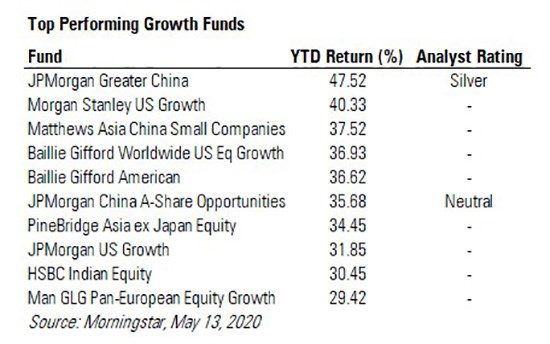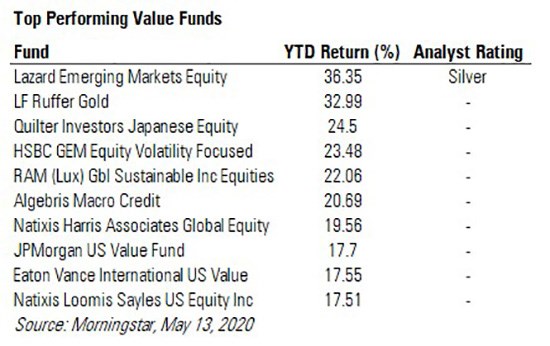
“This” versus “that” debates will always be raging in the world of investment - the omnipresent active versus passive argument is just one example. And one debate that will undoubtedly continue in the wake of the Covid-19 crisis is that of value versus growth funds.
When it comes to picking funds, strategy is something every investor should consider, and many funds fall within the value or growth label. While each style of investing is suited to different investors and neither can be seen as the superior alternative, they each has its own merits in different market cycles.
Growth or Value
Growth investors tend to be attracted to companies which are expected to grow faster than the rest - be it by cash flow or revenue. These stocks are often more expensive than others because they are in high demand. Value investors, meanwhile, are the more contrarian - looking for the hidden gems that are unloved by others. They pick companies whose current share prices do not necessarily reflect their worth, with the anticipation markets will eventually notice the mismatch and the value and price will rise accordingly.
When it comes to performance, short-term numbers are rarely something to look at when picking a fund; instead investors are told to look the longer term. The current climate, however, is a good indicator of how a fund copes in market ups and down. The coronavirus pandemic put stock markets into bear territory for the first time in years and has tested fund managers’ skills as well as the resilience of their portfolios.
Historically value stocks deliver greater returns over the long run, given there is more room for the company to grow; investing at the bottom can allow for greater gains as the stock rises compared with investing in a business when it is already at or near its peak valuation.
Top Performing Growth Funds
Taking a closer look at actively managed funds with a growth focus, it is clear in general they have been performing better than their value counterparts in the latest market storm. Asia equity and US equity funds in particular have been the best performing overall for this style of investing.
The Silver-rated JP Morgan Greater China fund tops the table being the highest returning fund year to date, with a 47.52% return. Meanwhile, Matthews Asia China Small Companies fund, JP Morgan China A-Share Opportunities fund and PineBridge Asia ex Japan Equity Fund all enter the top 10 performing funds.

Mark Baribeau, portfolio manager of the five-star rated PGIM Jennison Global Equity Opportunities fund says growth companies can benefit from “structural changes” to an economy as well as changes in consumer behaviour – something which we are seeing in droves at the moment.
He adds: “We maintain conviction that mobile internet, e-commerce, video streaming and games, digital payments and cloud computing continue to offer compelling transformative potential.”
Companies in these industries persistently innovate, he adds, as well as adjusting their business models, gain market share and benefit from long product cycles. Long cycles could indeed be something of attraction to cautious investors at the moment. “Even, and especially, during the current crisis, these secular areas are garnering increased attention as they have become lifelines for businesses and consumers,” says Baribeau.
Top Performing Value Funds
Value funds, meanwhile, have also seen positive performance, but not on the same scale as growth funds. Interestingly, the general focus of the top performing funds differs greatly from the growth funds, with the top value performers generally sitting in the emerging market space or commodities and credit. The Bronze-rated Lazard Emerging Markets Equity fund tops the value performers, with a year to date return of 36.35%, less than each of the top five growth performers.

Bear markets, such as the one in which we are currently in, often result in a change in market leadership, says John Linehan, manager of the three-star rated T.Rowe Price US Large Cap Value Equity fund.
The dotcom bubble burst in 2001, leading to a switch from growth to value investment strategies, while the global financial crisis in 2008/09 caused a shift back to growth. He adds: “Given how significantly value stocks have trailed growth stocks during the downturn and the preponderance of cyclicality in the value investing universe, the set up for value stocks is attractive.”
Linehan also believes we are in the most “target-rich” opportunity zone for investing in decades. As such, he has been stretching the time horizon for investments because nobody can predict how long the current market downturn will last.
Much like taking sides of the debate, there is no “right” or “wrong” style in which to invest. The timing, however, could help an investment grow.
In general, low interest rates favour growth stocks. So, the best fund pick may depend on how long you think this low interest environment will last. Growth stocks are predicted to continue to outperform, although at such low interest rates, value investors may believe now is the time to invest in some “cheap” stocks – although patience will be required.
And if you find you can't pick a side in the debate, there is always the blended approach for a diversified portfolio.





























